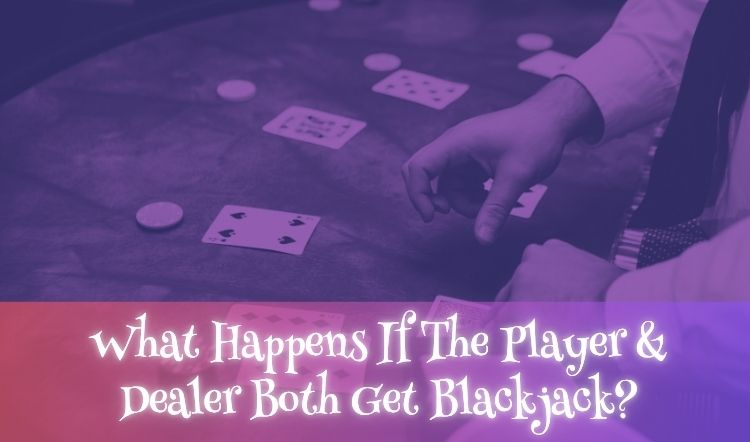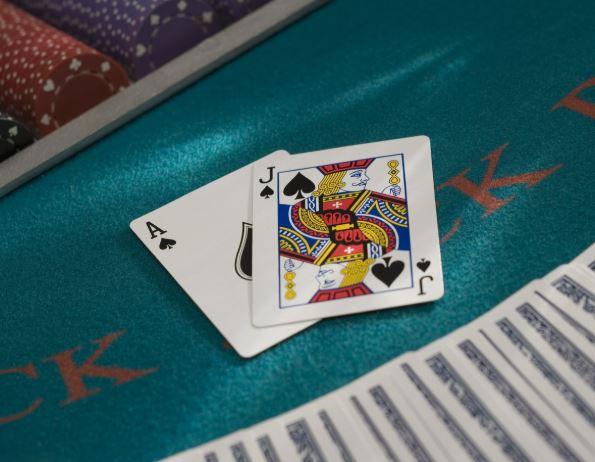
In blackjack, it is not unusual for both the player and the dealer to receive a blackjack, which can create a unique outcome for the hand. But what exactly happens in this situation, and how are wagers affected?
In this Wizard Slots blog post, we will explore scenarios involving both player and dealer blackjack. We will also touch on related considerations such as optional payouts, how ties are treated, and what occurs if both hands exceed 21.
By following along, you’ll gain a clearer sense of how these scenarios unfold at the table.
Even Money - Yes or No?
Sometimes, when the dealer shows an Ace and the player has a blackjack, players may be presented with an option called “even money.” At this stage, the concept may seem straightforward: it offers a fixed return before the dealer’s full hand is revealed.
For example, a typical blackjack payout is higher than the original wager. If a player chooses the early payout option, they receive an amount equal to their original stake. This might seem appealing in the moment, as it provides clarity about the immediate outcome.
Not every casino offers this choice. In some online platforms, it may be handled differently, resembling a type of side bet rather than a direct selection.
Later, we will look at why this option is often less favourable than it initially appears and how it compares to taking the standard potential payout.
Who Wins In Blackjack If You Tie With The Dealer?
When the player has blackjack, the usual result is a win. However, if the dealer also has blackjack, the outcome is generally a return of the original wager, with no additional payout. 
This situation is referred to as a push. Essentially, the hand ends without any gain or loss beyond the initial stake. While a push might feel frustrating, it highlights that blackjack is not just about receiving the highest hand, but about how the player performs relative to the dealer.
Some variations of the game include extra rules for ties. For instance, a “push 22” rule exists in certain multi-deck games or house-specific versions. In this case, if both the player and dealer reach 22, the wager might still be returned. However, these rules are exceptions rather than the standard.
Other options may appear in certain casinos. For example, a player might choose to forfeit part of their wager in order to tie with the dealer instead of risking the full amount. Similarly, insurance bets can be made when the dealer shows an Ace, allowing a side wager on whether the dealer has blackjack. While these mechanisms provide alternative outcomes, they are generally less favourable than playing the hand normally.
Returning to the earlier mention of even money, this is effectively a pre-emptive form of such a side choice: the player secures a fixed return rather than waiting to see if a push occurs.
In short, if both player and dealer hold blackjack, the hand normally ends as a push, and the player’s original stake is returned. Understanding this helps players make considered choices, rather than relying solely on receiving a high-value hand.
What Happens If You And The Dealer Bust?
A bust occurs when a hand exceeds 21. If both the player and dealer go over this total, the outcome differs from the push scenario. In these cases, the dealer wins, and the player loses the stake.
Double busts are uncommon because most players avoid taking extra cards when their total is already high. Yet they might occur if both parties choose to continue, even with a strong total such as 18 or 19.
It is important to remember that the loss does not reflect anything personal: it is simply the rule of the game. Players should focus on the dealer’s hand rather than solely aiming for the highest total possible.
Probability plays a role here. Using basic guidance on when to take another card or stand may reduce the likelihood of going over 21. For instance, standing on totals of 17 or higher is generally suggested, while drawing on totals of 11 or less might be preferable unless the dealer’s visible card is weak.
Even experienced players might encounter situations where both hands bust, demonstrating that blackjack retains an element of chance, despite any approaches.
By understanding pushes, optional payouts, and bust scenarios, players may make more informed decisions if they choose to play blackjack, whether online or in a physical casino. Always gamble responsibly and remember that outcomes are not guaranteed.
Recognising these possibilities is an important part of approaching the game with clarity and understanding, and may help you navigate different hands thoughtfully if you choose to play.
**All values (Bet Levels, Maximum Wins, etc.) mentioned in relation to this game are subject to change at any time. Game features mentioned may not be available in some jurisdictions.
**The information provided in this blog is intended for educational purposes and should not be construed as betting advice or a guarantee of success. Always gamble responsibly.
